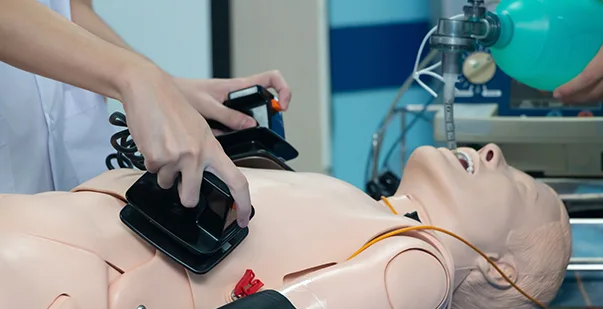The world we live in persistently demands both our time and energy. Almost all of us deal and cope with stress knowingly and unknowingly everyday. When the hectic schedules are especially anxiety ridden, it is important to take proactive steps to improve heart health.
Heart attacks are the most common cause of death for both men and women in the US. The symptoms of deteriorating heart health often stays undetected, as these symptoms are hard to recognize. If you are dealing with stress and leading a rather fast paced life, you might want to know how to improve heart health.
Fortunately, there are a lot of effective tips and tricks to improve your heart health. This blog will guide you through the 10 most effective ways to prioritize your heart health.
How to improve heart Health: 10 effective tips
Taking a proactive approach to getting your heart healthy is not as difficult as it seems. Below mentioned are easy tips that can be followed and when incorporated can bring significant changes in your life-
Read More: What are the signs of impending death after stroke?
- Prioritize Regular Exercise: Aim for 20-30 minutes of moderate-intensity exercise most days of the week. Even after a hectic day, take some time off to exercise, relax and rejuvenate.
- Adopt a Heart-Healthy Diet: Emphasize fruits, vegetables, whole grains, lean proteins, and healthy fats while limiting processed foods and excessive salt. Stressful work hours can induce the desire to eat junk and processed food. Replace chips and other munchies with healthy alternatives like dried fruits and nuts etc.
- Manage Stress: Incorporate stress-reducing practices like meditation, deep breathing exercises, or yoga into your daily routine. People have different ways to relax and relieve stress. Go for a swim or spend time simply doing what you love. This will help you stay focussed and motivated.
- Get Quality Sleep: Aim for 7-9 hours of restful sleep each night to support heart health and overall well-being. A goodnight’s sleep is important as it significantly reduces stress. If you are struggling to sleep at night, reduce screen time, avoid caffeine and listen to soothing music to relax.
- Maintain a Healthy Weight: Strive for a body mass index (BMI) within the healthy range to reduce the risk of heart disease. It is important to keep your weight in check. Always remember the goal is not to lose weight but to be healthy.
- Monitor Blood Pressure: Keep tabs on your blood pressure regularly and take steps to maintain it within the optimal range. If you are observing a persistent or sudden change, visit your doctor and get yourself checked.
- Quit Smoking: Smoking damages blood vessels and increases the risk of heart disease, so seek support to quit smoking for good. Individuals working stressful jobs often begin smoking and later face a difficult time discontinuing it.
- Limit Alcohol Consumption: Enjoy alcohol in moderation, as excessive drinking can contribute to heart problems. Know your limit and get yourself checked regularly.
- Stay Hydrated: Drink plenty of water throughout the day to support overall cardiovascular health. Staying hydrated is perhaps the most important rule for staying healthy.
- Schedule Regular Check-ups: Visit your healthcare provider for routine check-ups and screenings to detect and manage any potential heart issues early on. This becomes specifically important if you have crossed your 30s.
Read More: What is the basic difference between rescue breathing and CPR?
What are some common cardiac problems to stay aware of?
Maintaining awareness of the common cardiac problems can bring a significant change in helping people stay cautious about their heart health. This awareness can not only successfully stop the rising number of deaths by SCA(Sudden Cardiac Arrest) but also potentially prevent irreversible damages, like organ failure or paralysis.
Let’s go through the most common cardiac problems, that when not detected can be fatal in no time-
- Coronary Artery Disease (CAD): The most common type of heart disease, CAD occurs when plaque builds up in the coronary arteries, restricting blood flow to the heart.
- Hypertension (High Blood Pressure): Elevated blood pressure can strain the heart and blood vessels, increasing the risk of heart attack, stroke, and other cardiovascular complications.
- Arrhythmias: Irregular heart rhythms can disrupt the heart’s ability to pump blood effectively, potentially leading to palpitations, dizziness, fainting, or even cardiac arrest.
- Heart Failure: This condition occurs when the heart’s pumping capacity is weakened, causing fluid buildup in the body and symptoms such as shortness of breath, fatigue, and swelling.
- Heart Attack (Myocardial Infarction): A heart attack happens when blood flow to a part of the heart is blocked, typically due to a blood clot, leading to tissue damage and potentially life-threatening complications.
- Stroke: Often related to cardiovascular issues, a stroke occurs when blood flow to the brain is interrupted, causing brain damage and various neurological symptoms.
Read More: Know the difference between online CPR training and local CPR training.
Conclusion
If you are really wondering how to improve heart health, this blog will surely throw light on the doubts you had. When your heart is healthy, you get the zest and positivity to take on life’s battles. With the 10 effective tips that were discussed, one can make a significant difference in their journey to cardiovascular wellness. With the right information and the correct amount of motivation, anyone and everyone can keep their heart healthy and life vibrant.










